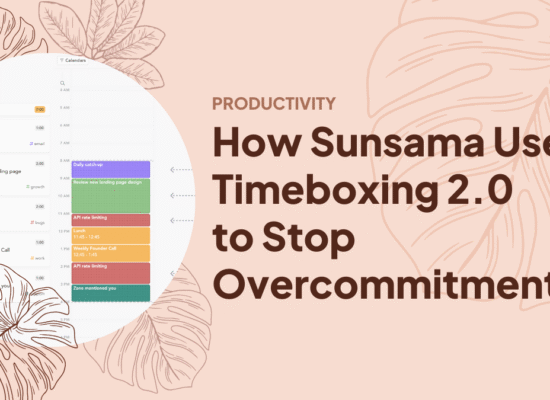Table of Contents
In the tapestry of Filipino culture, family stands as a cornerstone, weaving intricate patterns of love, respect, and tradition. However, nestled within these bonds are subtle complexities that often give rise to communication barriers within Filipino families. Understanding these barriers is key to fostering healthier relationships and bridging the gaps that can sometimes divide family members.
This blog delves into the nuanced dynamics of Filipino family communication, exploring why dialogue often remains unspoken and how generational differences shape interactions.
Understanding the Filipino Family Structure

The Hierarchical Nature
At the heart of the Filipino family structure lies a deeply ingrained sense of hierarchy, significantly impacting how family members communicate with each other. This hierarchy is typically based on age and gender, with elders holding a position of respect and authority.
Decision-making, problem-solving, and even daily conversations are influenced by this hierarchical order, where the opinions of the older family members are given priority. Such a structure, while fostering respect and unity, can sometimes stifle open communication, especially on topics where younger members may have differing views.
Respect and Authority in Communication
In Filipino families, respect for elders isn’t just a courtesy; it’s a fundamental value that shapes interactions. This respect manifests in various ways, from the language used to address older members to the deference given to their opinions and decisions.
The concept of ‘pakikisama,’ or smooth interpersonal relationships, emphasizes harmony and avoiding direct confrontation, especially with elders. While this respect cements familial bonds, it can also contribute to communication barriers within Filipino families. Younger members may hesitate to voice their thoughts or feelings, particularly on sensitive subjects like mental health or personal life choices, leading to a silence culture within the family.
Mental Health Conversations in Filipino Families

Avoidance by Older Filipinos
In many Filipino families, discussing mental health remains a taboo. Older Filipinos, shaped by traditional beliefs and a culture that often prizes resilience and stoicism, tend to steer clear of conversations about mental health. This avoidance partly stems from a lack of awareness and understanding of mental health issues. There’s a prevalent belief that acknowledging mental health problems is a sign of weakness or a personal failing, which conflicts with the Filipino values of strength and perseverance.
Stigma in Traditional Culture
The stigma associated with mental health in traditional Filipino culture is a significant barrier. Mental health issues are frequently misunderstood and attributed to supernatural causes or personal weaknesses.
This stigma leads to a reluctance in seeking help or even acknowledging the existence of such problems, reinforcing the silence around these topics. Older generations, in particular, might view mental health issues as a family embarrassment, further discouraging open discussions.
Impact on Younger Family Members
This culture of silence has a profound impact on younger family members, who may feel isolated or misunderstood in their struggles. The lack of open dialogue about mental health can leave them without the support or resources they need, exacerbating feelings of loneliness and confusion.
For many young Filipinos grappling with mental health challenges, this silence can hinder their ability to seek help and cope effectively.
Generational Gap in Opinions and Beliefs
A notable aspect of the communication barriers within Filipino families is the dismissal of younger members’ opinions by the older generation. This dismissal often arises from deeply rooted cultural norms where elders are viewed as the sole bearers of wisdom and experience.
Younger family members, despite their education or exposure to different ideas, may find their views on various issues, from career choices to lifestyle preferences, overlooked or undervalued.
Traditional vs. Modern Perspectives
The clash between traditional beliefs held by older generations and the more modern, progressive perspectives of the youth creates a divide. This divide is evident in views on gender roles, career paths, and social issues.
Older Filipinos might adhere to traditional values and expectations, while younger members, influenced by global exposure and education, embrace more liberal ideas.
Barriers in Effective Communication
This generational gap leads to barriers in effective communication within families. Younger members may feel their voices are not heard or respected, leading to frustration and a sense of alienation.
On the other hand, older members might feel disregarded or challenged by the new ideas and perspectives, creating an environment where open, constructive dialogue is difficult.
Traditional Values vs. Modern Mindsets
In the heart of Filipino family life lie core values that have been passed down through generations. These include a deep sense of family unity, respect for elders, and a strong emphasis on religion and spirituality.
These values are deeply ingrained and play a pivotal role in shaping family interactions, dictating how decisions are made, how conflicts are resolved, and how members relate to one another.
Integration with Contemporary Ideologies
As the world evolves, so do ideologies, and Filipino families find themselves at a crossroads where traditional values meet modern thinking. This intersection presents challenges in integrating these values with contemporary beliefs, especially around topics like career independence, gender equality, and lifestyle choices.
Younger family members, often influenced by global trends and education, may have views that contrast sharply with traditional Filipino expectations.
Conflicts Arising from the Clash
This clash of values often leads to conflicts within families. For example, a young adult opting for a non-traditional career path may face opposition from elders who value stability and traditional job roles.
Similarly, attitudes toward dating and marriage can be a point of contention, with older generations favoring conventional approaches over modern dating practices. These conflicts highlight the communication barriers within Filipino families, where respect for tradition can sometimes stifle individual expression.
Navigating Communication Barriers
The first step in overcoming these barriers is actively opening lines of communication. Families must create safe spaces where each member feels heard and valued. This involves actively listening to each other’s perspectives and fostering an environment of mutual respect.
Emphasizing Empathy, Understanding, and Patience
Empathy, understanding, and patience are key in navigating these complex dynamics. Family members need to empathize with each other’s experiences and viewpoints, seeking to understand rather than to judge. Patience is crucial, especially when bridging the gap between traditional and modern mindsets, as change and acceptance can take time.
Tips for the Younger Generation
For younger family members approaching sensitive topics with elders, it’s important to express their views respectfully and thoughtfully. They should seek to understand the cultural context of their elders’ beliefs and find common ground. It’s helpful to introduce new ideas gradually and with sensitivity, showing how these ideas can align with core family values.
Addressing communication barriers within Filipino families requires a balance of honoring traditional values while embracing modern perspectives. Through empathy, open dialogue, and respect, Filipino families can navigate these challenges and strengthen their familial bonds.
Conclusion
As we wrap up our exploration of communication barriers within Filipino families, it’s imperative to underscore the significance of addressing these challenges. The unique blend of traditional values and modern influences in Filipino culture creates a rich tapestry, yet it also gives rise to distinct communication hurdles. Recognizing and actively working to overcome these barriers is crucial for the health and harmony of family relationships.
Adapting and evolving communication styles within families is key to bridging the generational and ideological divides. It’s about finding a middle ground where traditional values are respected while modern perspectives are acknowledged. This evolution in communication requires a conscious effort from all family members, young and old, to listen, understand, and empathize with each other’s viewpoints.
By addressing the communication barriers within Filipino families, there’s an opportunity to build stronger, more resilient family bonds. Open and honest communication fosters a deeper understanding, mutual respect, and a sense of belonging among family members. It also sets a foundation for younger generations to navigate their cultural identity in a globalized world, armed with the wisdom of their heritage and the openness to new ideas.
Embracing a New Era of Family Dialogue
In the intricate dance of Filipino family dynamics, the rhythm of conversation is key. As we reflect on the nuanced communication barriers within Filipino families, let’s consider a shift towards a more empathetic and open dialogue. This isn’t about altering the core of our familial bonds but enriching them with a deeper understanding and acceptance of each other’s voices.







No Comment! Be the first one.